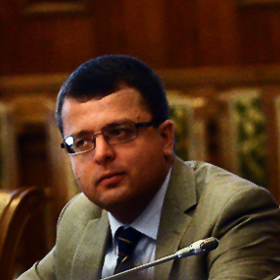
India and Pakistan’s Energy Security: Can Afghanistan Play a Critical Role?
India and Pakistan make up close to one-fifth of the world’s population, yet most people in these countries are without stable access to energy and power. As a result of these deficits, overall growth of these nations is stunted by 3 to 4 percent annually, which undermines sustainable development and stability in Southwest Asia.
In India and Pakistan’s Energy Security: Can Afghanistan Play a Critical Role?, EWI Fellow Danila Bochkarev argues that the power shortages can be addressed by building new energy corridors or a “New Silk Road,” which would transform Afghanistan into a regional trade and transit hub.
The report illustrates how this infrastructure would strengthen economic, political and social ties between Central Asia and South Asia and contribute to a more stable Afghanistan, allowing for improved economic growth.
"There is no shortage of energy resources in the Southwest Asia-Central Asia region and natural gas is abundantly available in this part of the world,” Bochkarev said. “Major centers of energy consumption in India and Pakistan are in proximity to the major producers of gas and hydroelectricity.”
The report describes two planned energy infrastructure projects that would run through Afghanistan—the Trans-Afghanistan Pipeline (TAPI) and the Central Asia South Asia Regional Electricity Trade Project (CASA 1000)—to access Turkmen gas and Central Asian electricity. “Afghanistan’s role as a transit country for gas from Central Asia can hardly be overestimated,” Bochkarev added.
A major challenge to these projects is, of course, the unstable security situation in Afghanistan and lack of genuine multilateral energy cooperation. Nonetheless, Bochkarev argues that the Energy Charter Treaty (ECT) could serve as an appropriate institutional umbrella for participating countries, providing for regional rules and regulations. ECT investment protection mechanisms, his report adds, would help to re-establish international investors’ confidence in the region’s economic and regulatory policies.
The release of this report coincides with the convening of the EastWest Institute’s 9th Annual Worldwide Security Conference in Brussels on November 12-13 at the World Customs Organization. The focus of WSC 9 will be “Reshaping Economic Security in Southwest Asia and the Middle East.”
For more information on the 9th Annual Worldwide Security Conference and to register, please visit: http://www.ewi.info/events/9th-annual-worldwide-security-conference.

